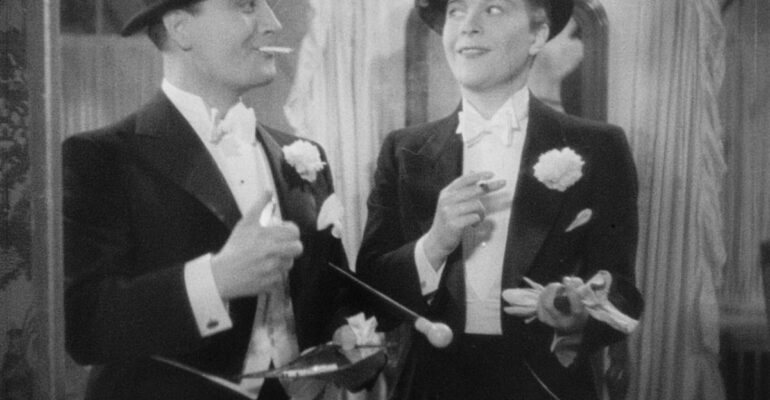Following theater closures due to the COVID-19 pandemic, Virtual screening rooms are created specifically for your cinema to open engagements of acclaimed new releases and generate revenue for your theater during this difficult time.
This special screening will start at the Clinton Street Theater on Friday, June 12, 2020 and co-presented by the Portland German Film Festival.
 |
|
AVAILABLE STARTING JUNE 12
FOR PRIDE MONTH
New Restorations of 3 “Way Ahead of Their Times” Classics
PIONEERS OF QUEER CINEMA
on
Virtual screening rooms
created specifically for your cinema
to open engagements of acclaimed new releases
and generate revenue for your theater during this difficult time.
SPECIAL REPERTORY TICKET PRICE: $15 FOR ALL 3 FILMS
|
 |
In German with English subtitles / Germany / 1931
Directed by Leontine Sagan
“Beautifully crafted and performed, evocatively lit, and sensitively directed. A landmark film in the evolution of Queer cinema.”
– Jason Wood, BBC
This artfully composed milestone of lesbian cinema – and an important anti-fascist film – was the first of just three films directed by Leontine Sagan. At an all-girls boarding school, new student Manuela and compassionate teacher Fräulein von Bernburg have a passionate and illicit romance.

|
“A moving portrait of burgeoning sapphic desire, rendered with great technical skill.”
– Film at Lincoln Center
“One of the few genuine women’s films of the 30s.”
– Don Druker, Chicago Reader
|
 |
German intertitles with English subtitles / Germany / 1924
Directed by Carl Theodor Dreyer
“Michael is perhaps Dreyer’s first masterpiece, assured, reticent, and radiant.”
– Tom Milne, The Films of Carl Dreyer
Danish film master Carl Theodor Dreyer’s Michael is a mature and visually elegant period romance decades ahead of its time. Michael takes its place alongside Dreyer’s better known masterpieces as an unusually sensitive and decorous work of art and is one of the earliest and most compassionate overtly gay-themed films in movie history. Collaborating with famed German cinematographers Karl Freund (Metropolis, The Last Laugh) and Rudolph Maté (Passion of Joan of Arc, DOA) Michael offers the first fully realized example of Dreyer’s emotionally precise, visually extravagant style that would be perfected in his subsequent masterworks such as Joan of Arc and Ordet.

|
“The picture speaks through its sumptuous decor, its subtle performances, and, perhaps most crucially, its compositions, expertly lensed by the influential cinematographer Karl Freund.”
– Film at Lincoln Center
“Closeups of burning intensity and opulent tableaux of frozen horror suggest the great director’s transcendent theme, of divine grace granted and withheld.”
– Richard Brody, The New Yorker “Offers a remarkably sympathetic view of gay and bisexual life.”
– Tim Purrel, Entertainment Weekly |
 |
In German with English subtitles / Germany / 1933
Directed by Reinhold Schünzel
“An impressive blast of Weimar decadence…As the inevitable romantic complications ensue, what emerges is a movie with surprisingly tangled gender politics and a melancholy sense of romance, crossed with lively, creative musical numbers.”
– Bilge Ebiri, Vulture New York
In this dazzling musical romance, a young woman (Renate Müller), unable to find work as a music hall singer, partners with a down-and-out thespian (Hermann Thimig) to revamp her act. Pretending to be a man performing in drag, Victoria becomes the toast of the international stage. But she soon finds that her playful bending of genders enmeshes her personal and professional life in a tangle of unexpected complications. Produced in the final days of the Weimar Republic, Victor and Victoria received limited exposure in the United States, and is today best known by Blake Edwards’s 1982 remake and the 1995 Broadway production. Viewers will be delighted to discover that the original is every bit as charming and outrageous, reminiscent of the sly sex comedies of Ernst Lubitsch and Billy Wilder.

“Stands as a remarkable example of late Weimar popular cinema and easily takes its place alongside contemporary Hollywood work by Ernst Lubitsch.”
– Rick Thompson, Senses of Cinema

